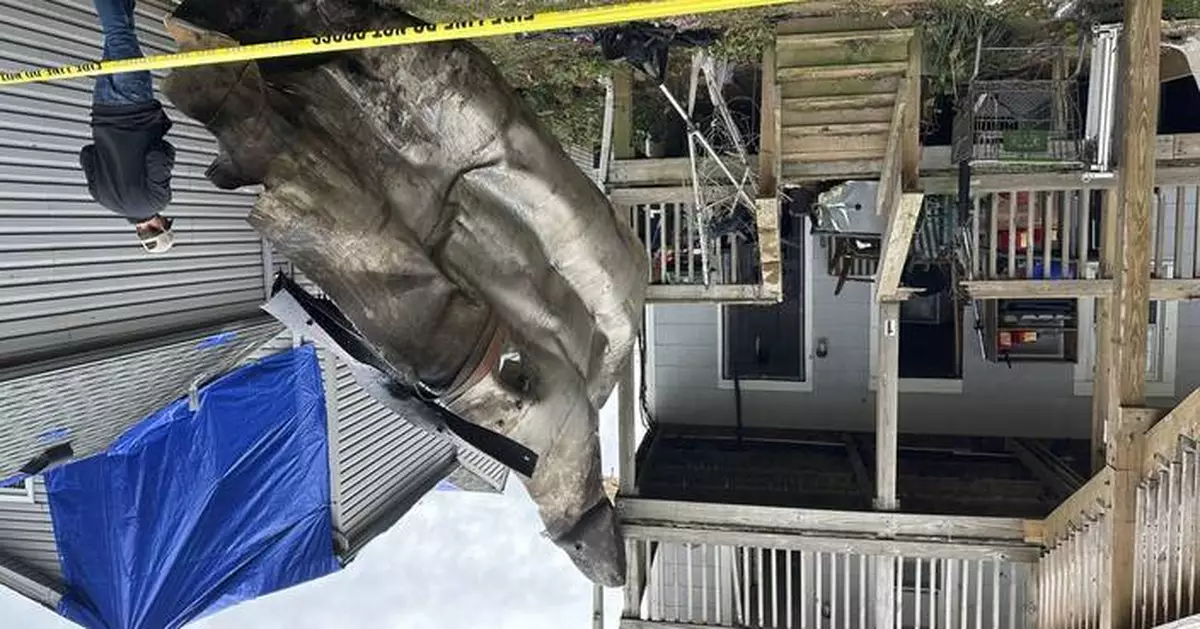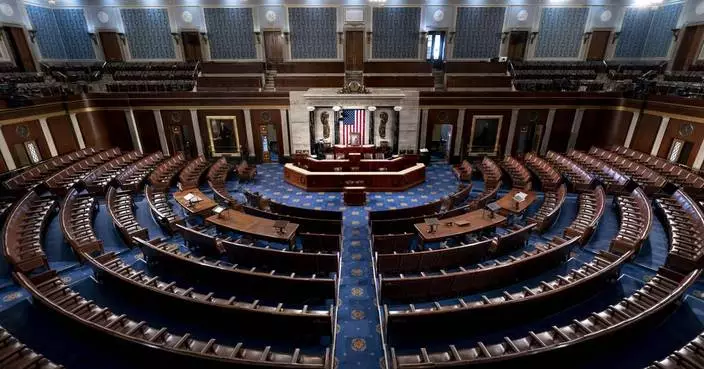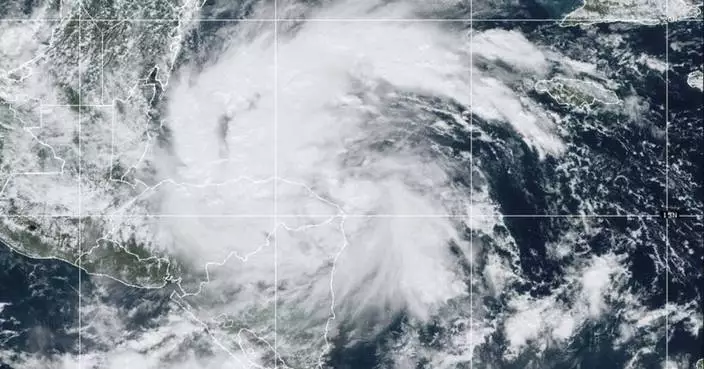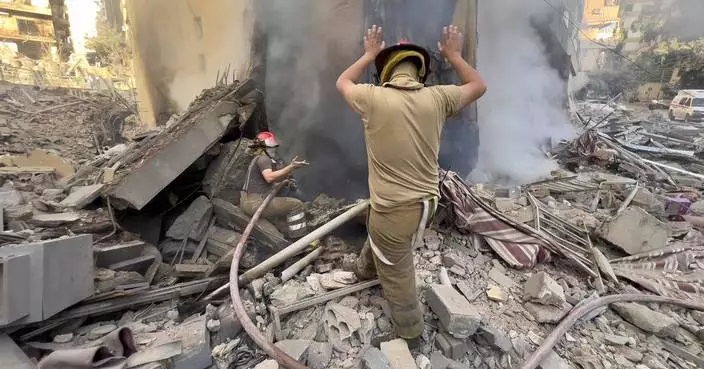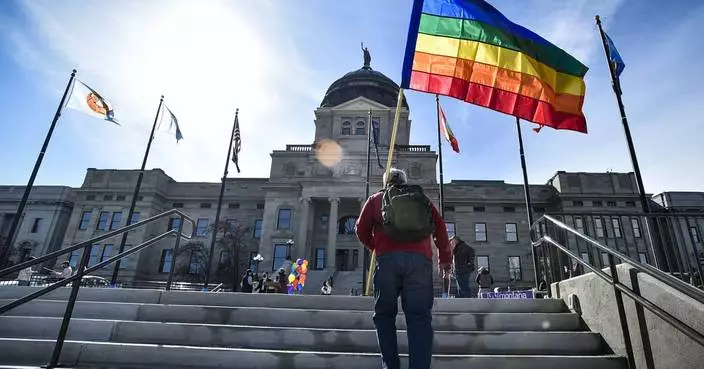LOUISVILLE, Ky. (AP) — Kentucky's governor pledged Thursday that investigators will find out what caused a deadly explosion that ripped apart a Louisville factory and left its shellshocked neighbors demanding answers.
Louisville's mayor, meanwhile, signaled he'd like to see the plant's operations move elsewhere in the city
The blast at Givaudan Sense Colour on Tuesday killed two workers, injured 11 other employees and caused a partial collapse of the plant, which produces colorings for food and drinks.
The decades-old factory is tucked into a residential neighborhood east of downtown in Kentucky's largest city. In some nearby homes, the midafternoon explosion blew out windows, ripped pieces off roofs and sent things hanging on walls crashing down. Some residents likened it to a bomb exploding.
“We’ll get to the bottom of it, make sure that we know all of the facts when the investigation is complete,” Democratic Gov. Andy Beshear said at a news conference in Frankfort. “Then, if there are any lessons learned that we can take from this and provide to other companies that are out there, we should.”
Federal, state and local investigators are looking into the blast.
Investigators will interview plant employees and others who were nearby when the explosion occurred, Louisville Mayor Craig Greenberg's office said Thursday. Swiss-based Givaudan has said it is cooperating with authorities.
The mayor's office also expressed support for neighborhood residents raising concerns that Givaudan might rebuild in the same location.
“Mayor Greenberg shares those same concerns and believes there are better locations in Louisville for this facility and he has conveyed that to Givaudan leadership,” Greenberg's office said in a statement.
People living near the plant said they're wanting to hear directly from the company.
“I feel that the company hasn't done anything than release a statement,” Carly Johnson, who has lived in the neighborhood for 12 years, said Wednesday.
Greenberg has said the company was invited to speak at a news conference Wednesday but that it did not have any representatives present.
The company said Wednesday it was “deeply saddened” by the deaths and was “grieving with the families, friends and loved ones of those that were lost and injured during this very difficult time.” Its businesses include making natural coloring ingredients used in a variety of food and beverage products.
Beshear said Thursday that neighborhood residents deserve to hear directly from company officials, and that the company should be “fully transparent” with them.
“I believe any company that has an explosion in a community ought to be there talking with the neighbors, assuring them that they’re going to take reasonable steps,” the governor said.
The company did not immediately respond to an email seeking a response to Beshear's remarks. The company told WHAS-TV that it plans to speak with neighbors at a community meeting next week.
The workplace fatalities at the factory were reported to the Kentucky Division of Occupational Safety and Health Compliance and an investigation has been opened, the state said Thursday. The investigation could take up to six months to complete, it said.
As of February 2021, the factory made caramel colorings for the food industry by heating sugar and water and adding chemicals such as aqueous ammonia for some products, according to permitting documents filed with the Louisville Metro Air Pollution Control District. At the time of the permits, the plant was still owned by D.D. Williamson & Co. Givaudan acquired the plant from D.D. Williamson that year.
In April 2003, an explosion at the same location killed a worker at a caramel-coloring plant. Federal investigators determined a tank exploded because there was no pressure relief valve, according to a report from the Chemical Safety Board.
Robin Durkin, who lives down the street from the plant, said this week's blast rattled her house. Pictures fell off the wall, her TV toppled over and dishes broke.
“I’ve never heard or felt anything like that,” she said “It was awful. ... I really thought a bomb went off.”
Johnson said she hopes it all ends with the company moving out of the neighborhood.
‘"I’m not OK with them being here anymore," she said.
Tonya Wilkerson, who lives about a block from the plant, said she has no intention of moving.
“We've got a great location," she said Wednesday. “We want them to move.”
Associated Press journalists Dylan Lovan and Rebecca Reynolds in Louisville and John Raby in Charleston, West Virginia, contributed to this report.
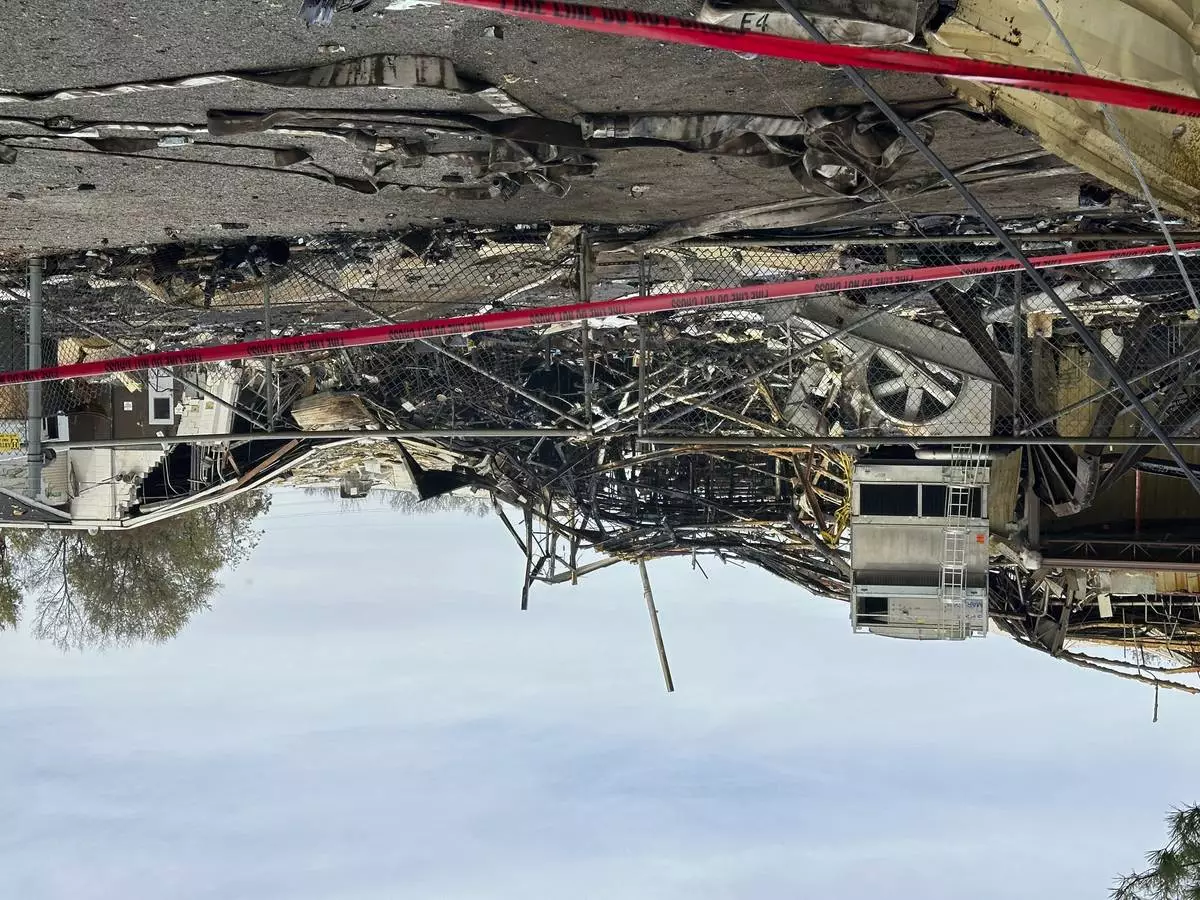
The area is closed off showing damage from an explosion at the Givaudan Color Sense plant in Louisville, Ky. on Wednesday, Nov. 13, 2024. (AP Photo/Dylan Lovan)
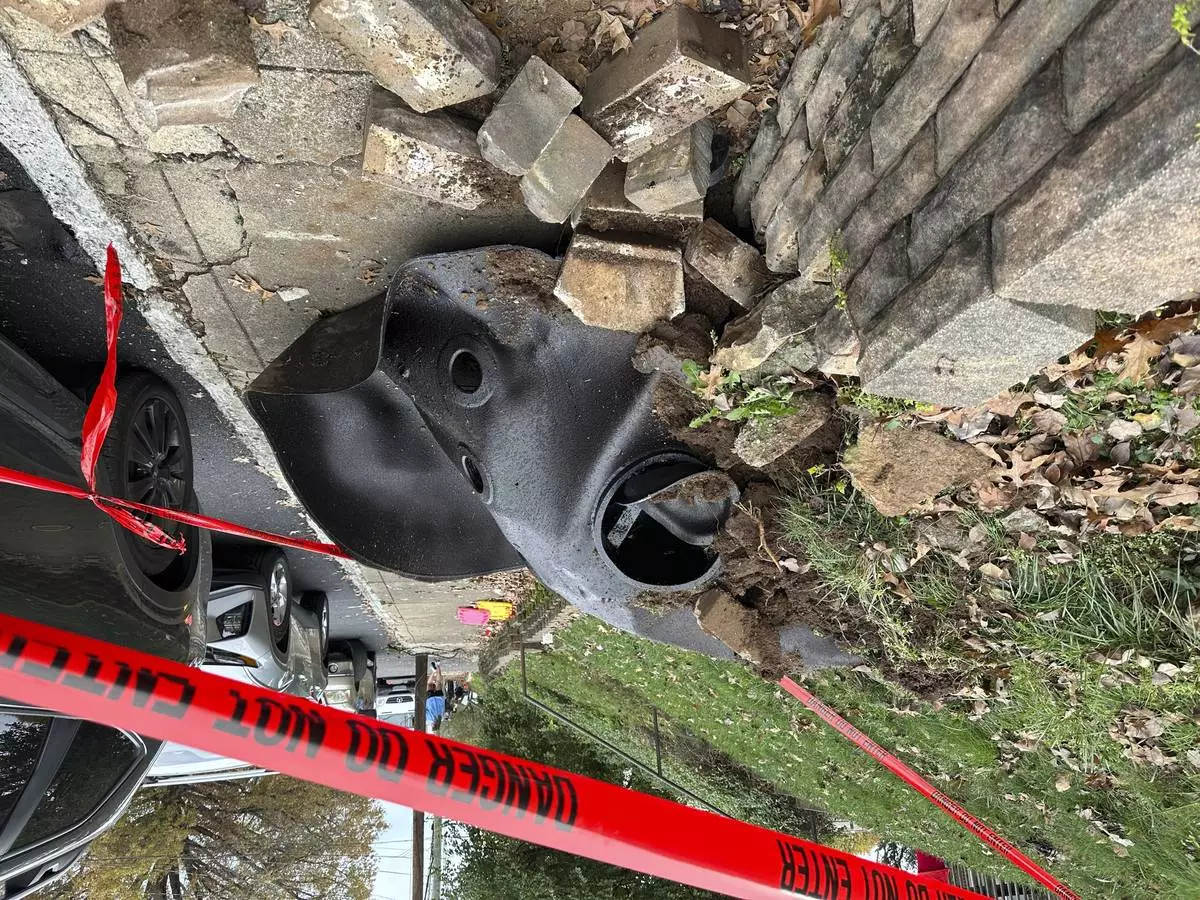
A large metal piece of debris that was flung across a street by a blast at a Louisville, Ky, plant is shown on Wednesday, Nov. 13, 2024. Two workers died in the explosion at the Givaudan Color Sense plant in Louisville. (AP Photo/Dylan Lovan)
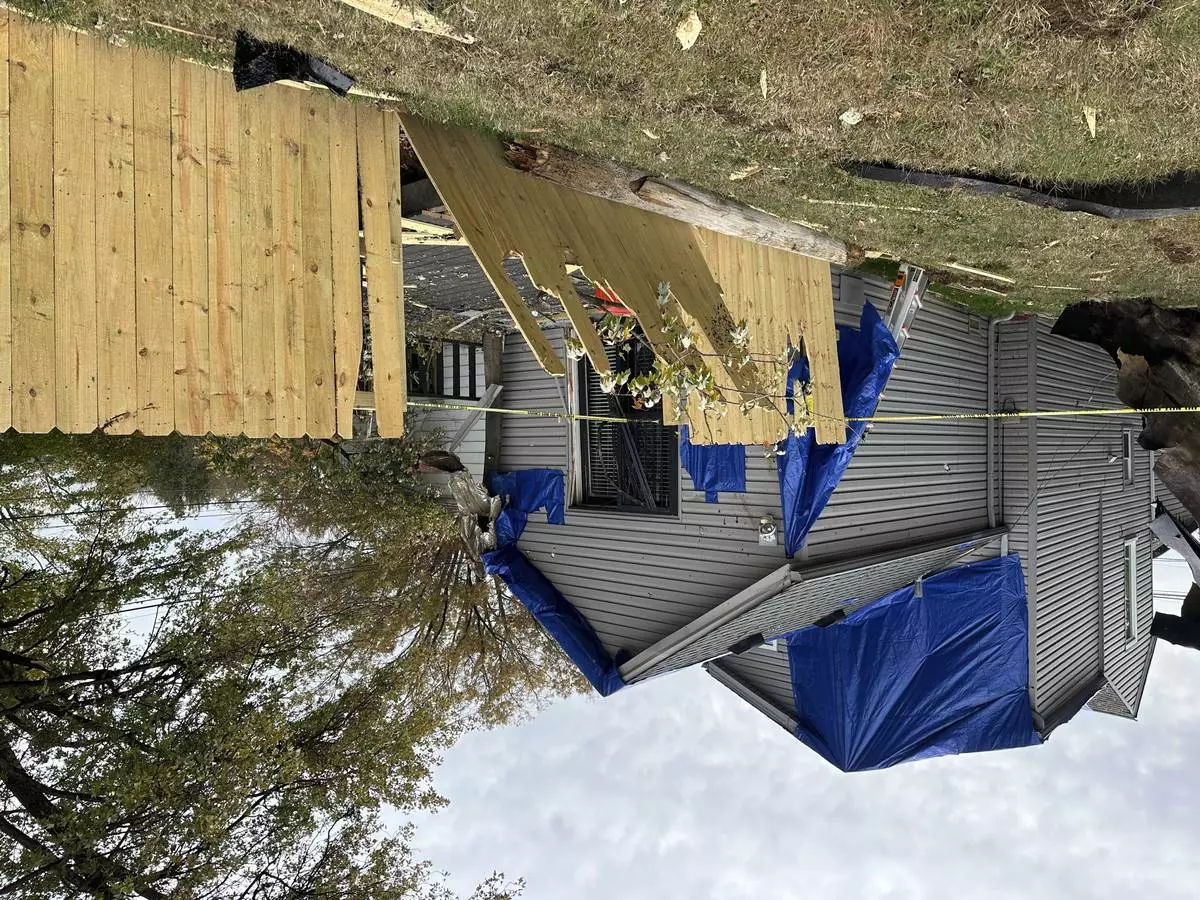
A residential fence near a Louisville, Kentucky, plant that exploded is pictured on Wednesday, Nov. 13, 2024. (AP Photo/Dylan Lovan)
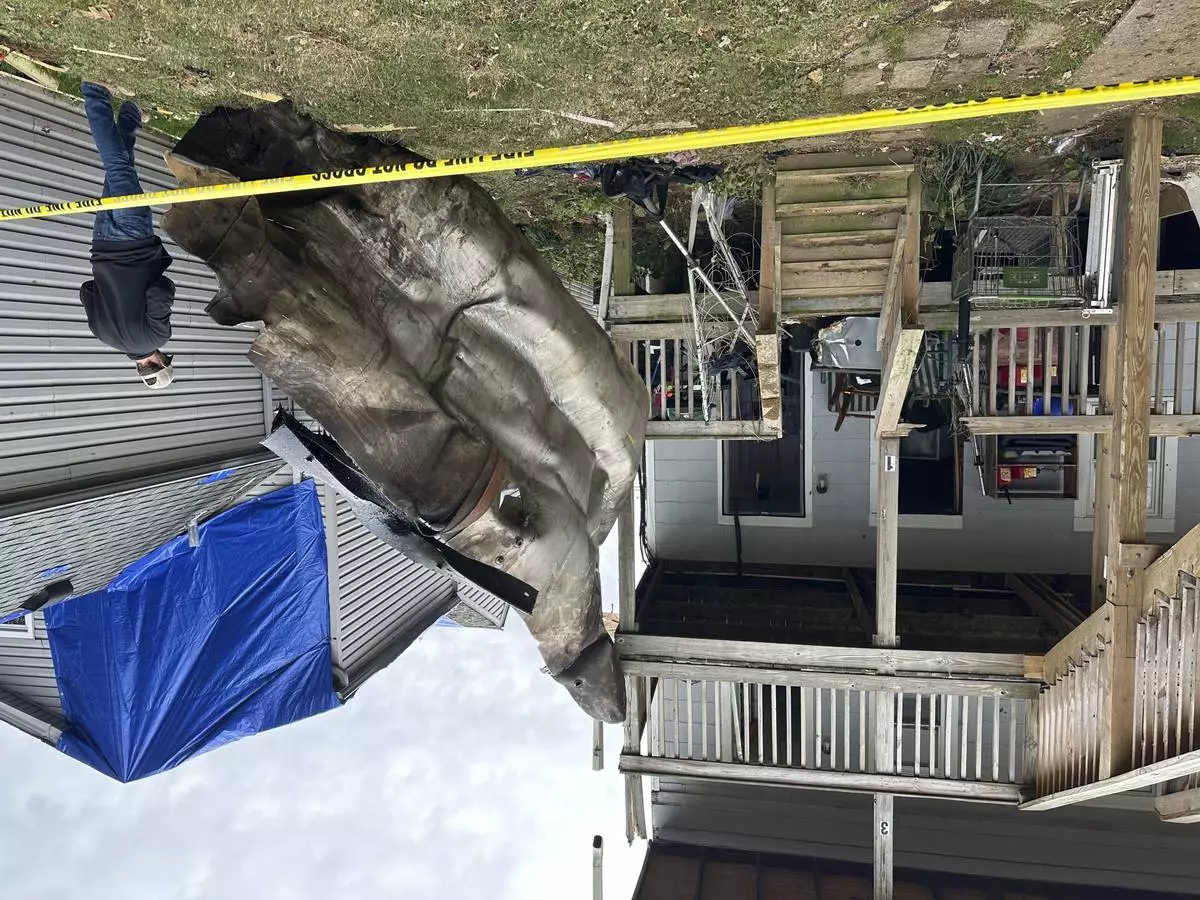
A massive piece of debris that flew from the Givaudan Color Sense plant after an explosion is pictured on Wednesday, Nov. 13, 2024 in Louisville, Ky. (AP Photo/Dylan Lovan)
BEIRUT (AP) — An Israeli airstrike killed at least 12 Lebanese rescue workers on Thursday inside a civil defense center in the eastern city of Baalbek, according to health and rescue officials, hours after state media in Syria said Israeli strikes in and around the capital killed at least 15 people.
Lebanese emergency workers were digging through the rubble Thursday evening to search for more of their colleagues still trapped under the destroyed rescue center, the group said in a statement. At least three civil defense members were wounded.
There was no immediate comment from the Israeli military. Lebanon’s civil defense forces have no affiliation with the militant group Hezbollah, and they provide crucial rescue and medical services in one of the world’s most war-torn nations.
The Health Ministry condemned what it called a “barbaric attack on a Lebanese state-run health center,” adding that “it is the second Israeli attack on a health emergency facility in less than two hours.”
In southern Lebanon, an Israeli strike on Arabsalim village targeted the Health Authority Association, a civil defense and rescue group linked to Hezbollah, killing six people, including four paramedics, the Health Ministry said.
Earlier, Israel carried out at least two airstrikes on the western Mazzeh neighborhood of Damascus and one of the suburbs of Syria's capital, Qudsaya, killing at least 15 and wounding another 16, Syria's state news agency said. An Associated Press journalist at the scene in Mazzeh said that a five-story building was damaged by a missile that hit the basement.
The Israeli military said it hit infrastructure sites and command centers of the Islamic Jihad militant group.
In Syria, an official with Palestinian Islamic Jihad said the strike in Mazzeh targeted one of their offices, and several members were killed. The official spoke on condition of anonymity because he wasn’t authorized to speak to the media.
The airstrikes came shortly before Ali Larijani, an adviser to Iran’s supreme leader Ali Khamenei, was scheduled to meet in the Syrian capital with representatives of Palestinian factions at the Iranian Embassy in Mazzeh.
Israel's military says Islamic Jihad participated alongside the Palestinian militant group Hamas in the Oct. 7, 2023 attacks from Gaza into Israel that killed some 1,200 people — mostly civilians — and saw 250 others abducted.
The ensuing Israel-Hamas war has spilled into the wider region, affecting Lebanon, Syria and leading to strikes between Israel and Iran. The war has left much of Gaza in ruins and has killed over 43,000 Palestinians, mostly women and children, according to local health authorities who do not distinguish between civilians and combatants.
Israeli warplanes intensified airstrikes in Lebanon on Thursday, targeting various areas in southern and eastern Lebanon, including the outskirts of the southern port city of Tyre and the Nabatieh province, the National News Agency said.
Throughout the day, sporadic airstrikes targeted Beirut’s southern suburbs in a clear uptick in attacks on the district over the past two days, with the Israeli military issuing evacuation warnings for several locations and buildings in the suburbs.
The Israeli military said it struck Hezbollah targets in the Dahiyeh area, including weapons storage facilities and command centers. Military spokesman Rear Adm. Daniel Hagari said that over the past week, Israel had “struck more than 300 targets from the air across Lebanon, including about 40 targets in the heart of the Dahiyeh in Beirut.”
Lebanon’s state media said an earlier Israeli airstrike hit a building in Baalbek, killing at least nine people and wounding five others. The strike came without warning. The Israeli military did not immediately comment and the target was unclear.
A report by the World Bank on Thursday estimated that Lebanon has suffered $8.5 billion in physical damages and economic losses from 13 months of war.
Hezbollah began firing into Israel on Oct. 8, 2023, in solidarity with Hamas in Gaza. Since then, Israeli strikes and bombardment in Lebanon have killed at least 3,380 people while the number of wounded has surpassed 14,400, the Health Ministry said Thursday. Among the dead were 658 women and 220 children.
In Israel, 76 people have been killed, including 31 soldiers.
Before the war intensified on Sept. 23, Hezbollah said that it had lost nearly 500 members but the group has stopped releasing statements about their killed fighters since.
United Nations peacekeeping chief Jean-Pierre Lacroix, speaking during a visit to Lebanon, said the U.N. remains committed to keeping its peacekeeping force, known as UNIFIL, in place in all of its positions in southern Lebanon, despite intense ongoing battles between Israeli forces and Hezbollah militants.
UNIFIL has continued to monitor the escalating conflict between Israel and Hezbollah across the boundary known as the Blue Line despite Israeli calls for peacekeepers to pull back 5 kilometers (3 miles) from the border. UNIFIL has accused Israel of deliberately destroying observation equipment, and 13 peacekeepers have been injured in the fighting.
Separately, Israeli media reported Thursday that Prime Minister Benjamin Netanyahu’s chief of staff, Tzachi Braverman, has been questioned by police over suspicion of altering official records connected to the Oct. 7 Hamas attacks to benefit his boss.
Multiple reports said Braverman is suspected of changing the time stamp of a conversation Netanyahu held with his military secretary in the first minutes of the attack. The reports were confirmed by an Israeli official who spoke on condition of anonymity due to the ongoing investigation.
Netanyahu’s office had no immediate comment. It was not immediately clear why Braverman made the change.
Aji reported from Damascus, Syria. Abby Sewell in Beirut and Josef Federman in Jerusalem contributed to this report.
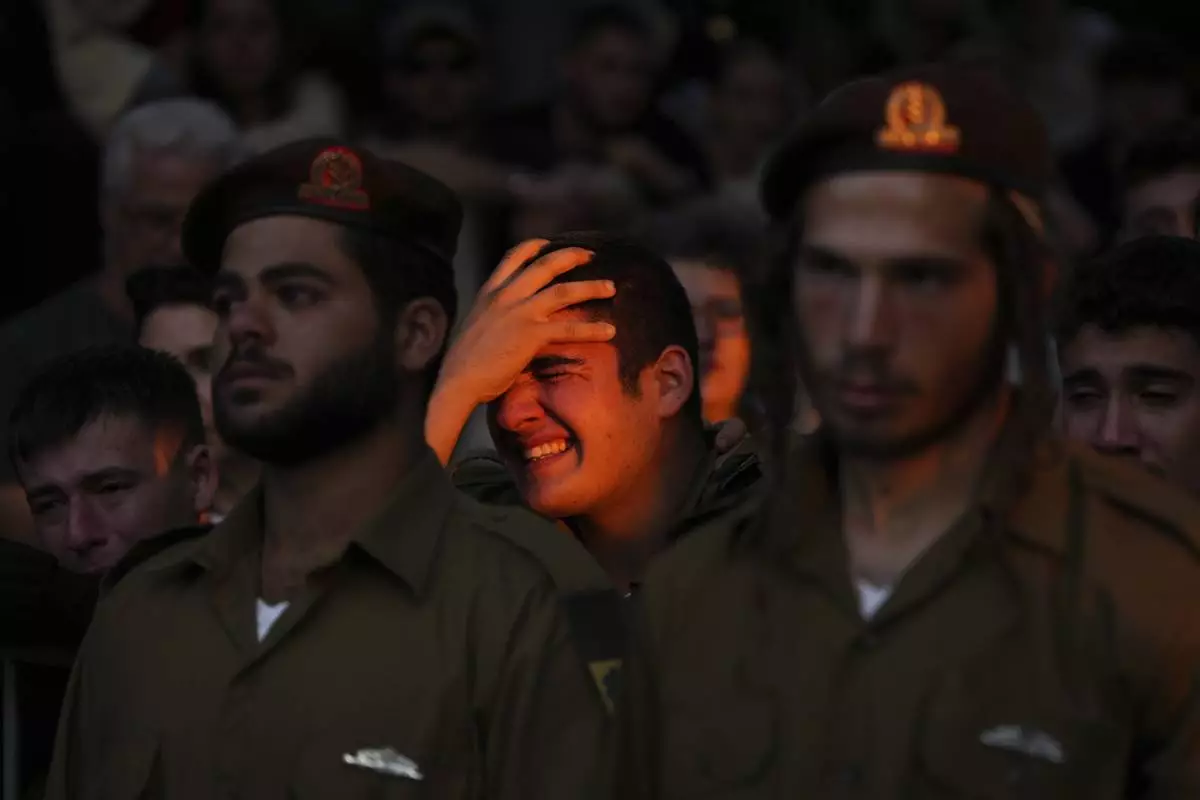
Mourners react during eulogies for Israeli soldier Capt. Itay Marcovich, who was killed in action in Lebanon, during his funeral in Kokhav Yair, Israel, Thursday, Nov. 14, 2024. (AP Photo/Ohad Zwigenberg)
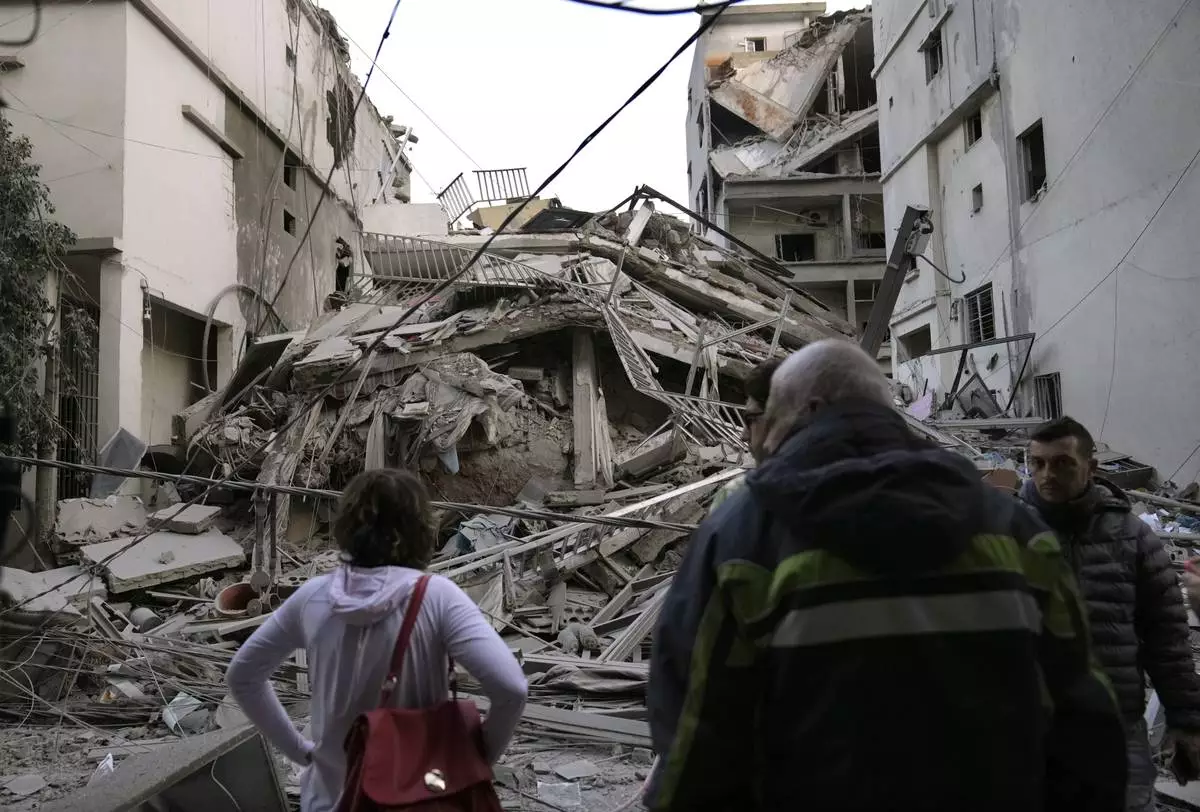
Residents check their destroyed building hit in an Israeli airstrike in Dahiyeh, in the southern suburb of Beirut, Lebanon, Thursday, Nov. 14, 2024. (AP Photo/Hussein Malla)
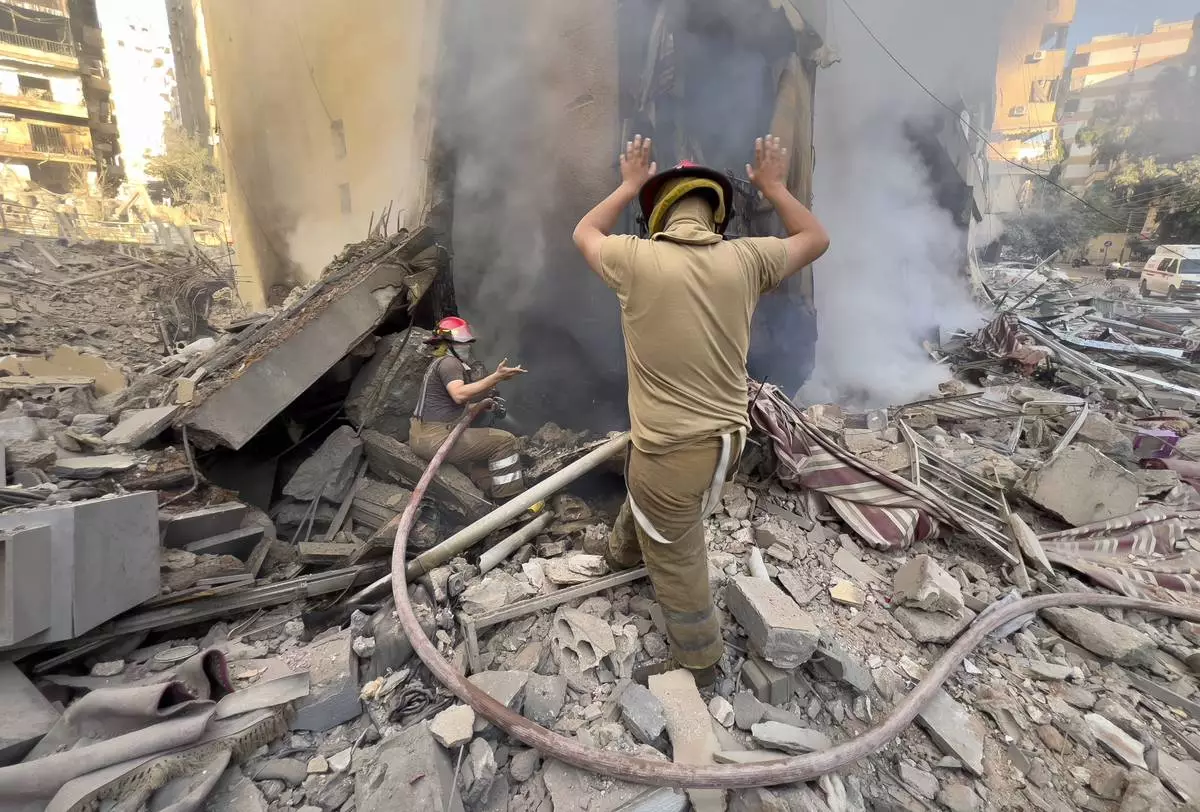
Firefighters try to extinguish a fire as smoke rises from a destroyed building that was hit in an Israeli airstrike in Dahiyeh, in the southern suburb of Beirut, Lebanon, Thursday, Nov. 14, 2024. (AP Photo/Hussein Malla)
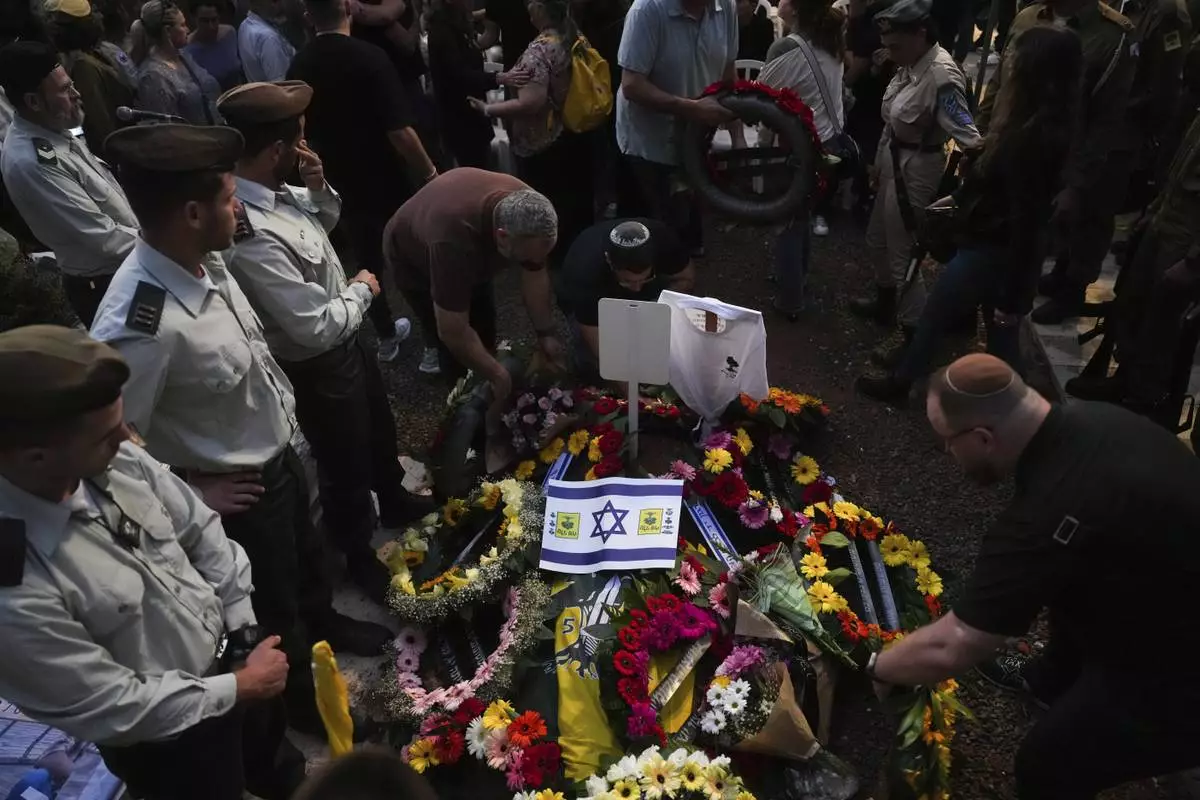
Mourners gather around the grave of Israeli soldier Capt. Itay Marcovich, who was killed in action in Lebanon, during his funeral in Kokhav Yair, Israel, Thursday, Nov. 14, 2024. (AP Photo/Ohad Zwigenberg)
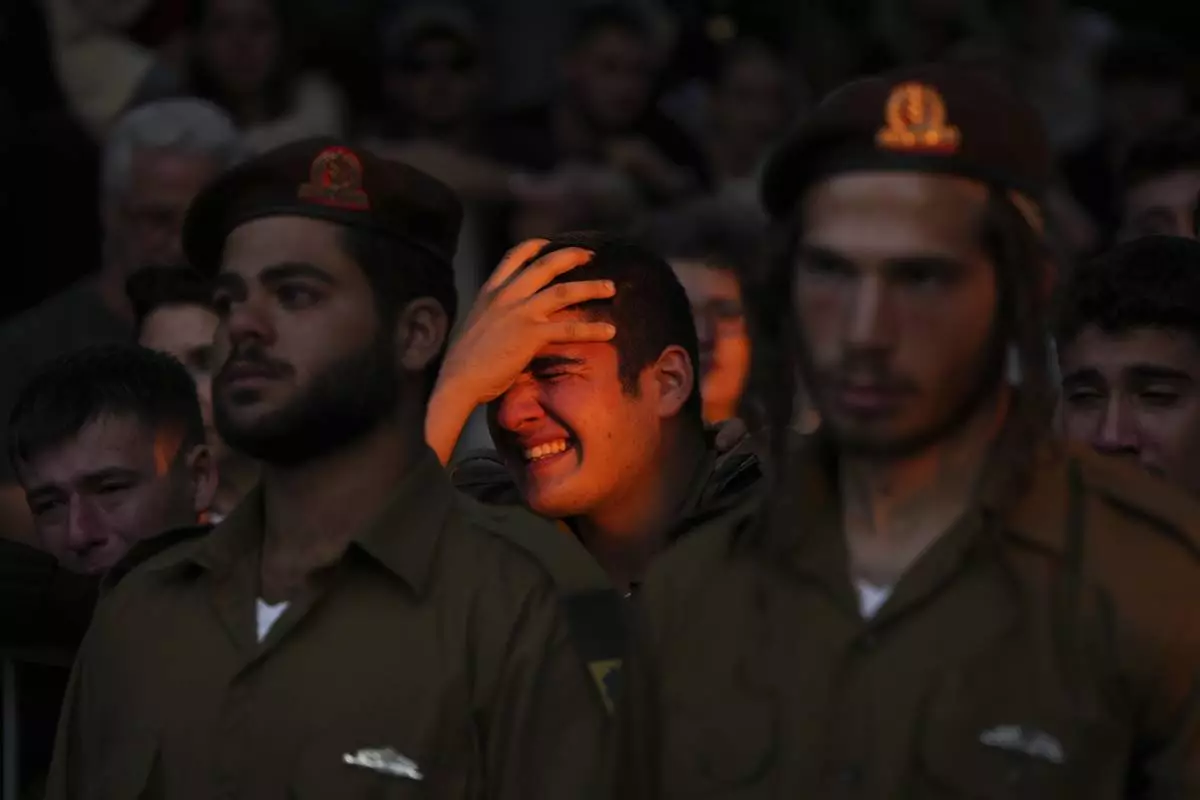
Mourners react during eulogies for Israeli soldier Capt. Itay Marcovich, who was killed in action in Lebanon, during his funeral in Kokhav Yair, Israel, Thursday, Nov. 14, 2024. (AP Photo/Ohad Zwigenberg)
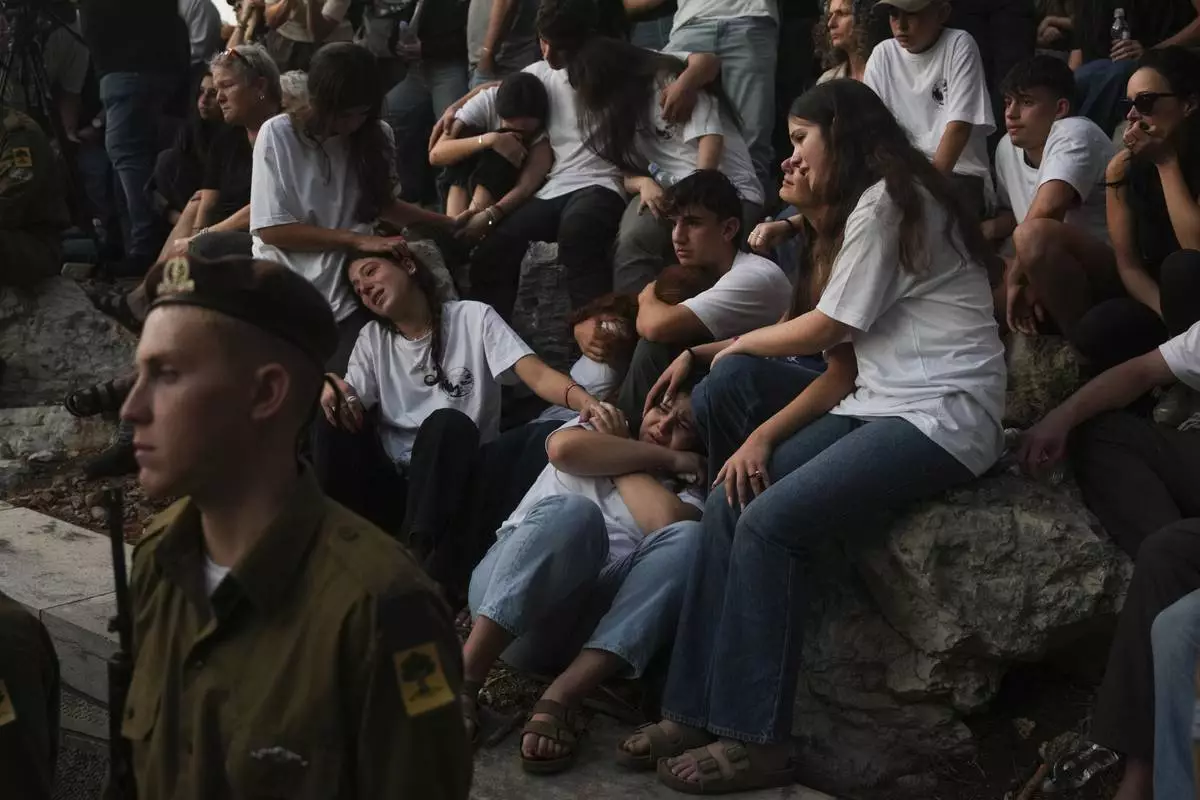
Mourners react during eulogies for Israeli soldier Capt. Itay Marcovich, who was killed in action in Lebanon, during his funeral in Kokhav Yair, Israel, Thursday, Nov. 14, 2024. (AP Photo/Ohad Zwigenberg)
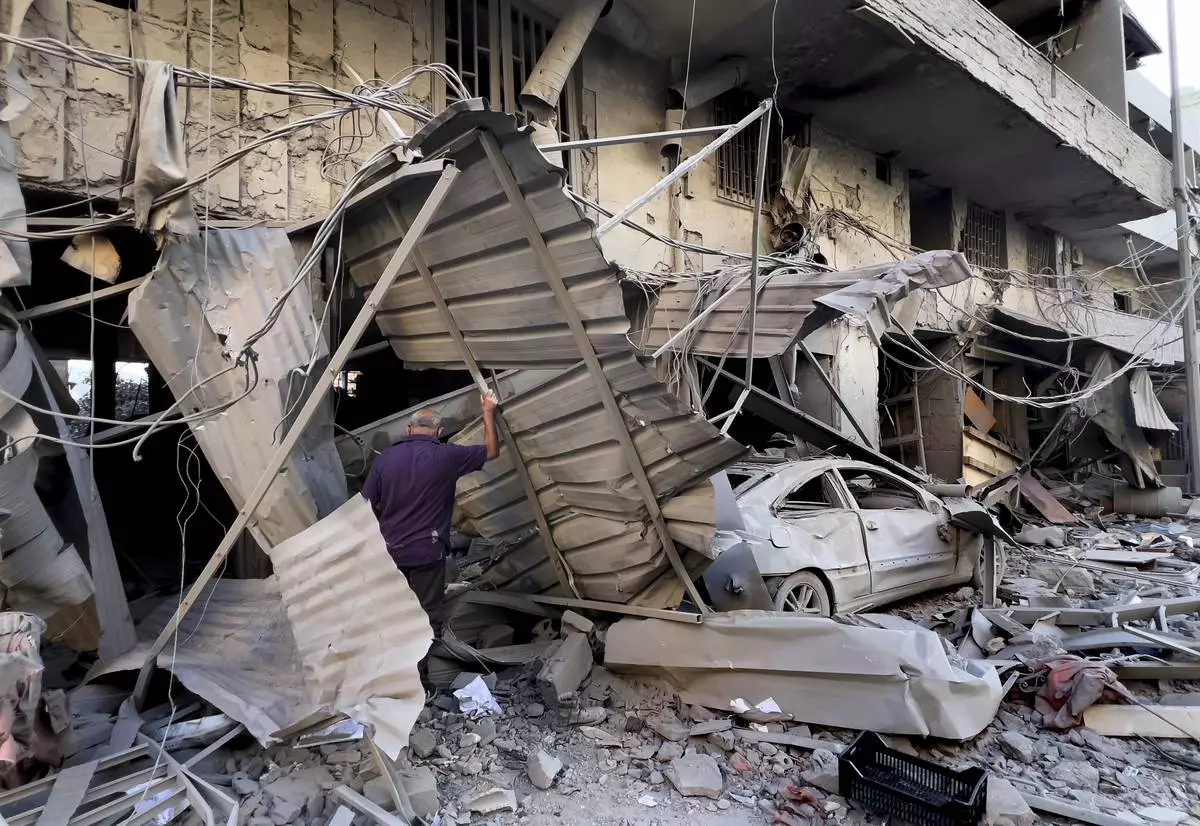
A man checks his destroyed shop at a street that was hit in an Israeli airstrike in Dahiyeh, in the southern suburb of Beirut, Lebanon, Thursday, Nov. 14, 2024. (AP Photo/Hussein Malla)
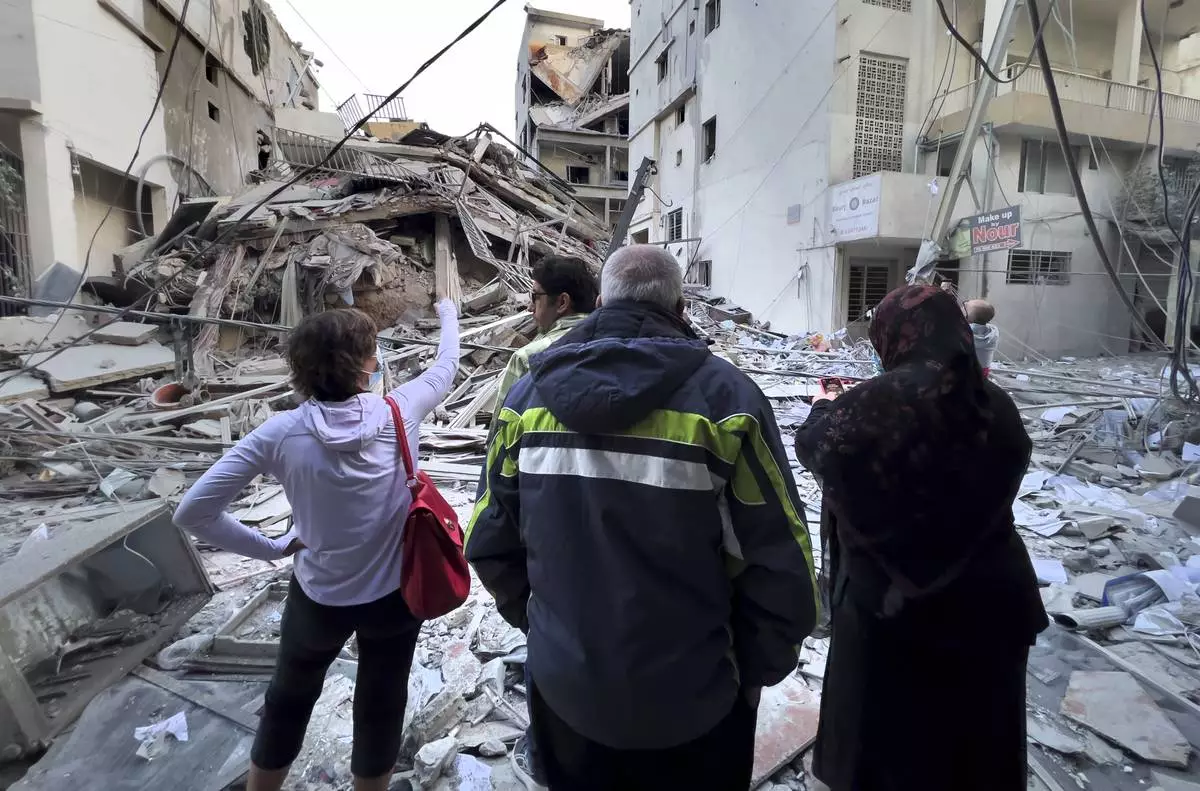
Residents check their destroyed building hit in an Israeli airstrike in Dahiyeh, in the southern suburb of Beirut, Lebanon, Thursday, Nov. 14, 2024. (AP Photo/Hussein Malla)
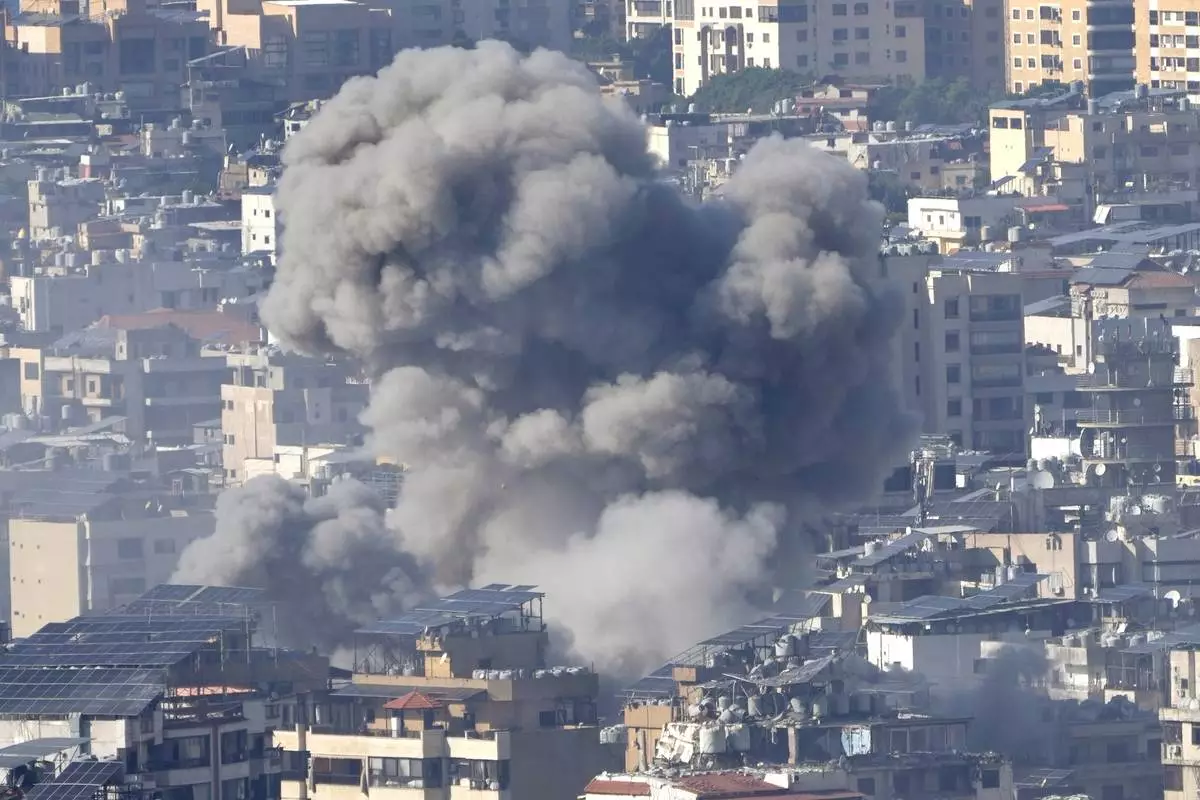
Smoke rises between buildings hit in an Israeli airstrike in Dahiyeh, in the southern suburb of Beirut, Lebanon, Thursday, Nov. 14, 2024. (AP Photo/Hussein Malla)
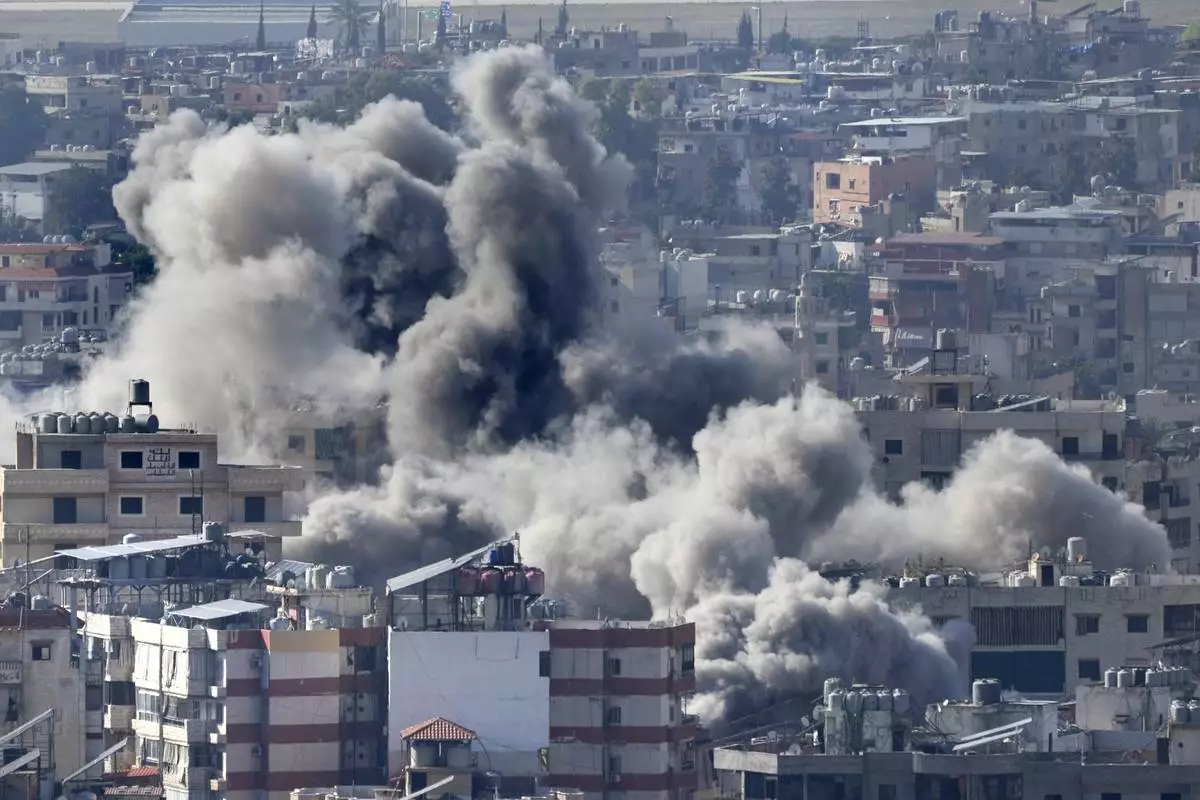
Smoke rises between buildings hit in an Israeli airstrike in Dahiyeh, in the southern suburb of Beirut, Lebanon, Thursday, Nov. 14, 2024. (AP Photo/Hussein Malla)
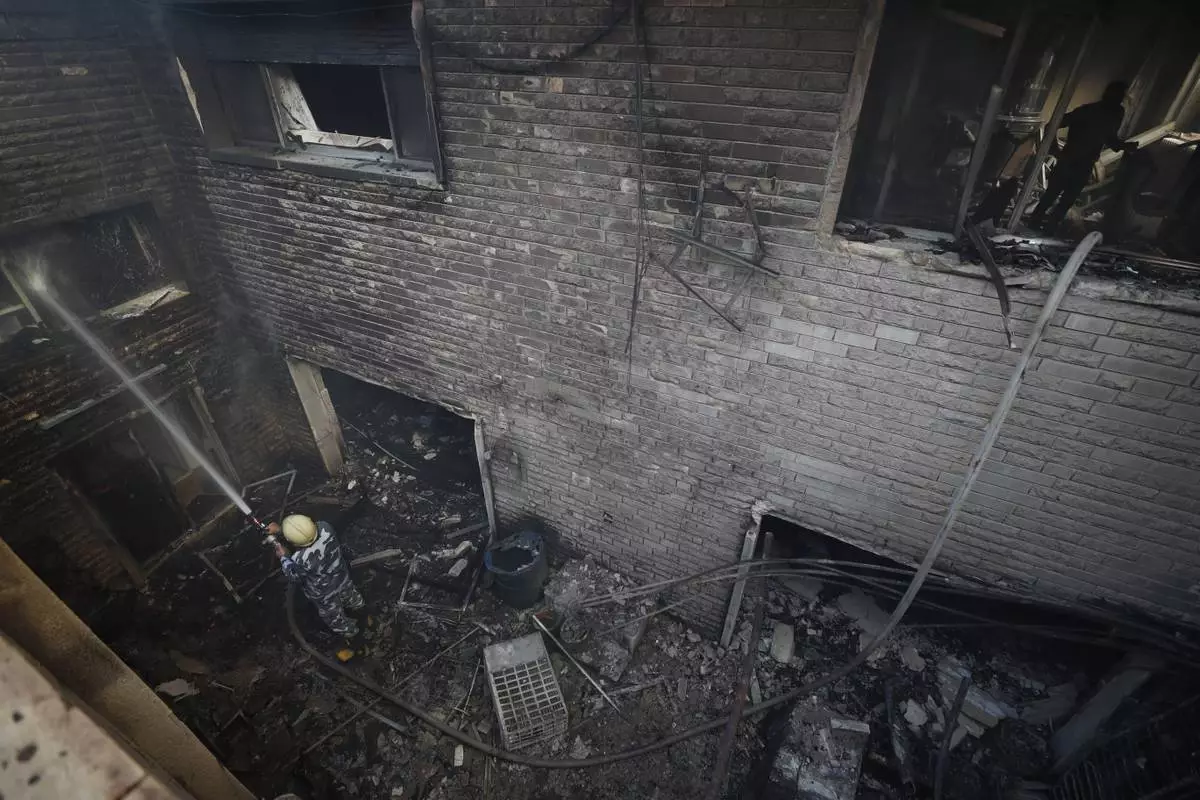
A firefighter hoses down a building hit in an Israeli airstrike in Damascus, Syria, Thursday, Nov. 14, 2024. (AP Photo/Omar Sanadiki)
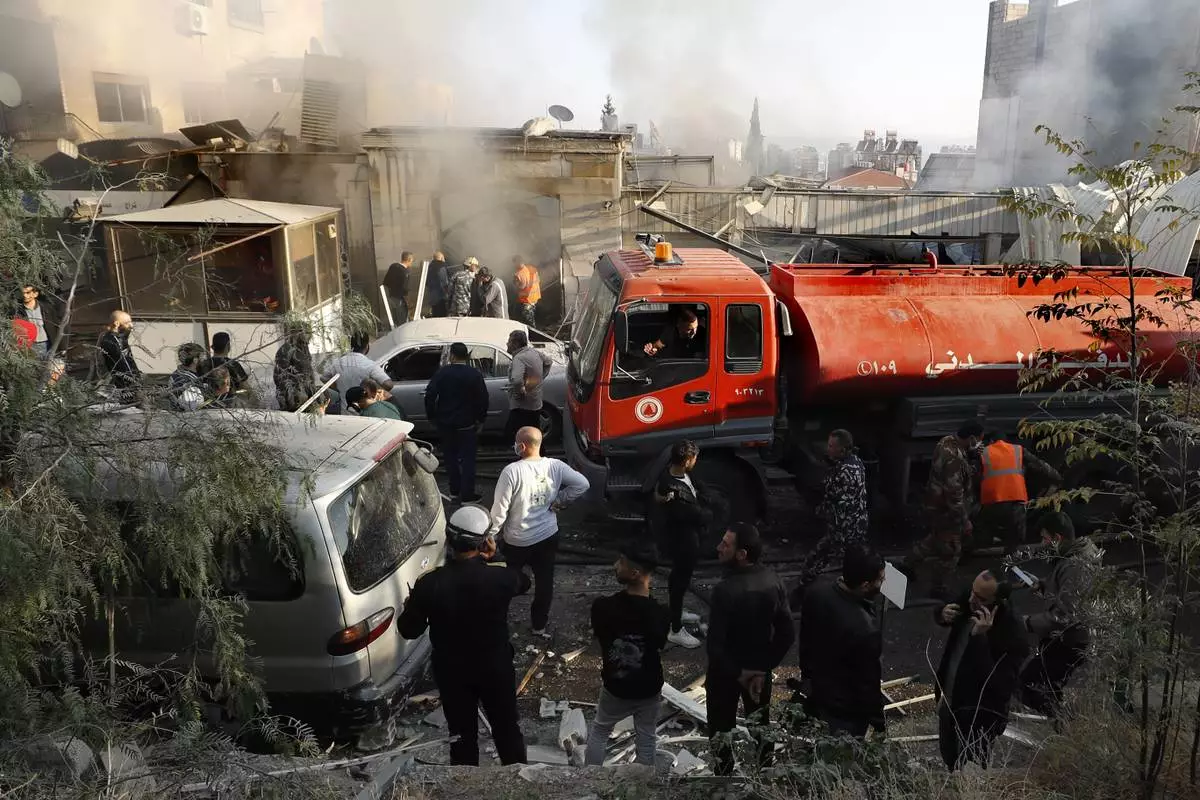
Firefighters and security officers gather at a destroyed building hit in an Israeli airstrike in Damascus, Syria, Thursday, Nov. 14, 2024. (AP Photo/Omar Sanadiki)
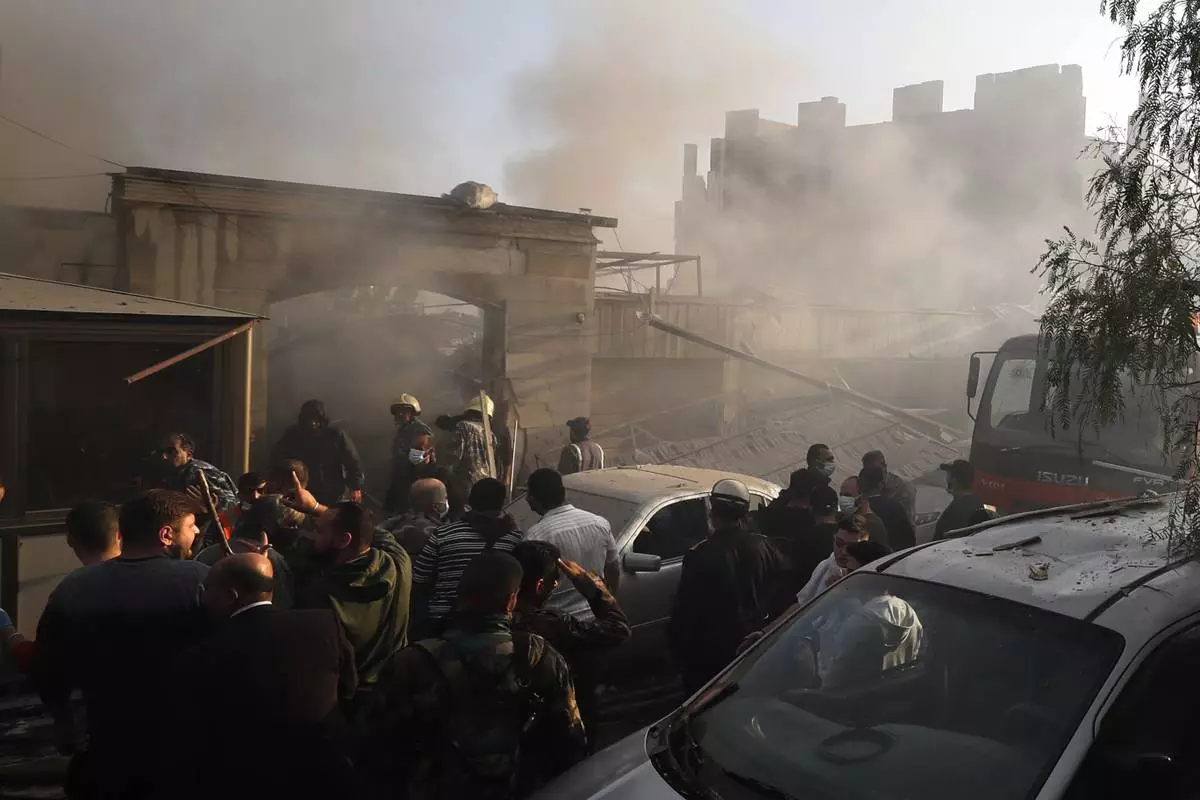
Security officers and rescuers gather at a destroyed building hit in an Israeli airstrike in Damascus, Syria, Thursday, Nov. 14, 2024. (AP Photo/Omar Sanadiki)






